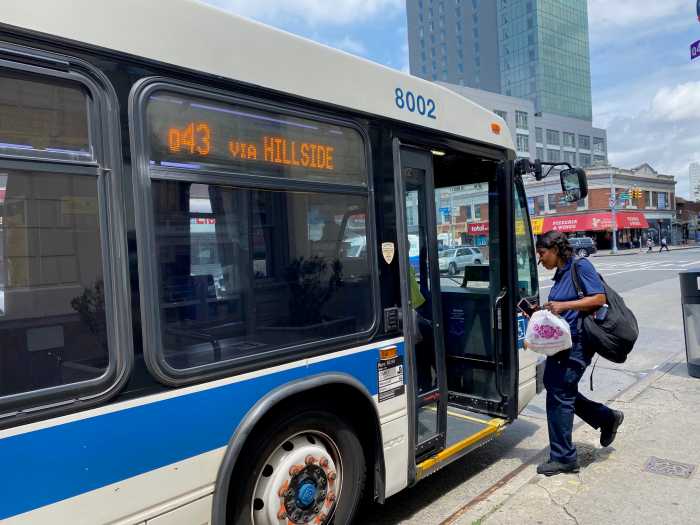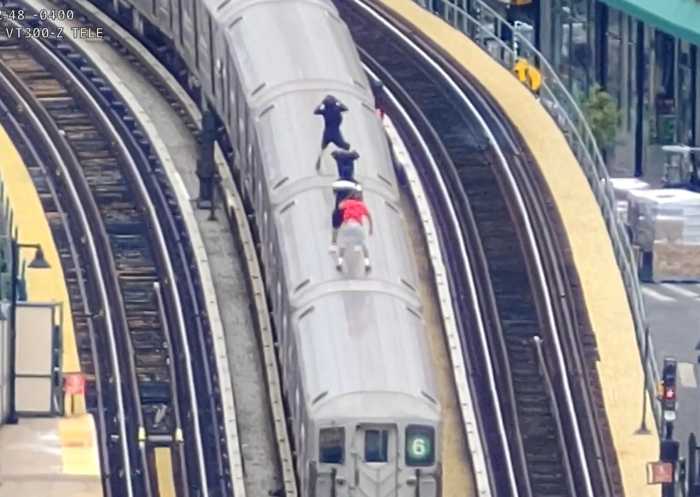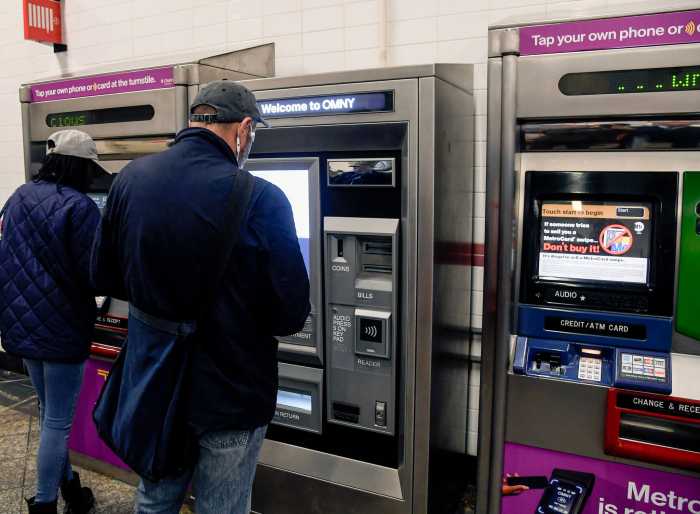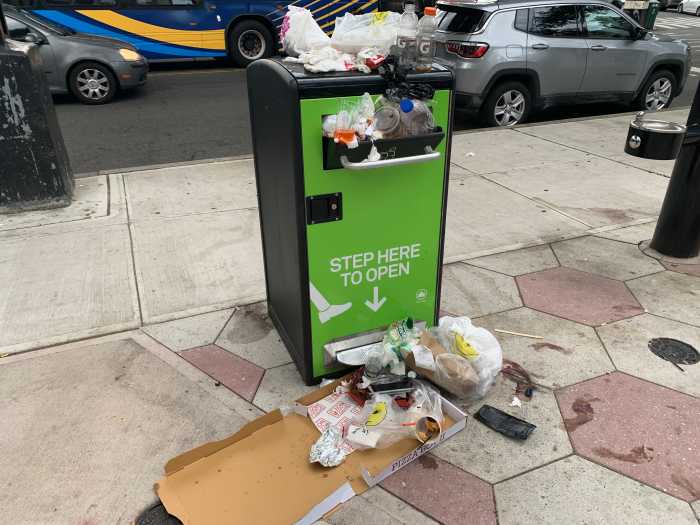If Gov. Andrew Cuomo wants congestion pricing in New York, he had better not include tolling any of the city’s free East River bridges, Queens elected officials warned Sunday morning.
The handful of elected officials from the state and city level have forcefully denounced the prospect of new bridge tolls as Cuomo drafts a congestion pricing plan for New York City that would raise revenue for its mass transit network.
“We’re willing to listen to everything, but we will not accept tolls on the free East River bridges, which have been free since 1911,” said Queens Assemb. David Weprin during a news conference near the Queensboro Plaza subway station. “Our Queens residents, and Brooklyn residents as well, rely on those bridges to go back and forth.”
Cuomo is expected to unveil details on his congestion pricing plan at his 2018 State of the State address, according to the governor’s office. While no specifics have emerged, the two prominent attempts in the past decade to institute congestion pricing in New York City both included tolling the East River’s four well-traveled bridges: the Brooklyn, Manhattan, Williamsburg and Ed Koch Queensboro.
The elected officials who gathered together Sunday made clear that the idea wouldn’t find support in Queens, citing a negative impact on commerce, the prospect of ever-increasing tolls and the belief that outer-borough residents should have the option to travel free of charge between boroughs.
“You should be able to travel, even if it’s a little more burdensome, for free somehow from borough to borough,” said Queens Borough President Melinda Katz, who questioned whether any new toll revenue would even make it to the Metropolitan Transportation Authority for specific infrastructure-related projects such as signal replacements.
“We talk about the MTA needing money and we talk about the fact that you have to upgrade the subways — which I don’t think anyone would doubt,” Katz said, “but the past [congestion pricing] proposals that have been given to us don’t have any directed stream to the MTA for particular upgrades on the system.”
The officials were joined by Queens Chamber of Commerce executive director Thomas Grech, who said he believed the city cannot have tolls on the East River bridges “until they can develop drones that can pick up people and products up over the air over the island of Manhattan.”
Queens City Councilman Barry Grodenchik pointed to the “thousands and thousands” of people traveling into Manhattan over the bridges, free of charge. “There’s no reason to change that,” he said.
But increasing traffic, slowing bus speeds and increasing greenhouse gas emissions are precisely why advocates for congestion pricing believe it’s necessary.
“Some of the city’s worst air quality, if not the worst, is in midtown Manhattan,” said Nilda Mesa, the former director of the Mayor’s Office of Sustainability who now heads the Columbia University Earth Institute’s Urban Sustainability and Equity Planning program, in a recent interview with amNewYork. “If done right, you would see mobility improve, carbon emissions that contribute to climate change cut, and better air quality for New Yorkers.”
Still, Weprin said he believes there are other ways the city could tackle mounting congestion before adding new tolls. One way would be to mandate that deliveries to Manhattan be made between midnight and 6 a.m.
“The commuting problem with congestion in Manhattan … [is] double-parked deliveries,” Weprin said. “The whole Uber and Lyft situation has created enormous congestion — there’s a way to deal with that.”
Jon Weinstein, a spokesman for Cuomo, assured that any congestion pricing plan that’s introduced would have a limited impact on outer borough residents.
“There are a variety of models that are being reviewed, vetted and analyzed,” he said in a statement. “It’s perplexing that Melinda Katz, David Weprin and Barry Grodenchik could hold a press conference on a proposal that hasn’t been proposed yet — they should really know the facts first.”
Among the vocal critics of congestion pricing is Mayor Bill de Blasio, who has said he has yet to see an equitable proposal for outer-bough drivers and is trying to gain state support for his own plan to fund the MTA subway system.
Former Mayor Michael Bloomberg attempted to introduce a congestion pricing plan — complete with East River bridge tolls — nearly a decade ago, but failed after his proposal met opposition in Albany. In 2015, a coalition called Move New York offered a failed proposal that built on Bloomberg’s plan, by also reducing the tolls already in place on such outer-borough bridges as the Verrazano-Narrows and Bronx-Whitestone, which serve areas with few mass transit options.
The political landscape in Albany has since changed, though, with both Assembly Speaker Carl Heastie and Senate Majority Leader John Flanagan seemingly open to at least hearing the governor’s proposal when details emerge.


































